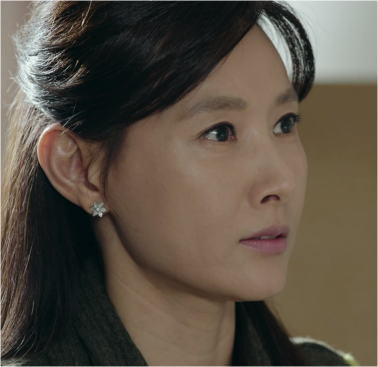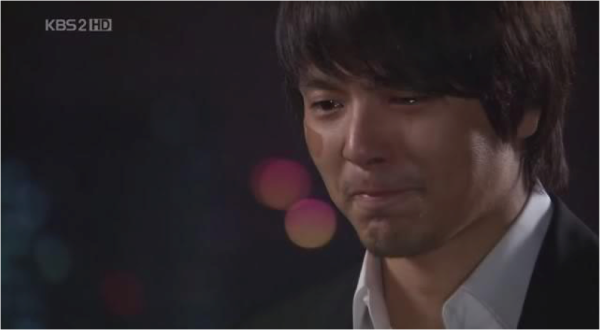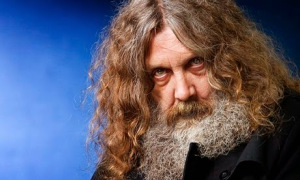Alan Moore e il 20° secolo: la stupenda intervista di John Higgs tradotta in italiano
“You start to get the impression that sometimes things kind of percolate through from the realm of ideas into the realm of actuality”
Un’interessantissima riflessione sulla letteratura (soprattutto quella di genere fantascientifico e horror) come espressione delle rivoluzioni culturali, delle ansie e delle contraddizioni dei due secoli scorsi.
Chi non conosce Alan Moore? Grazie a opere come V per Vendetta, Watchmen e La Lega degli Straordinari Gentlemen, lo scrittore inglese è diventato uno dei più grandi autori contemperai, rivoluzionando il mondo dei fumetti. Nell’intervista che vi segnaliamo oggi, reperibile sul canale YouTube di Gianluca Freda, l’autore John Higgs pone una serie di interessantissime domande proprio ad Alan Moore, parlando del ruolo che ricopre la cultura nella società contemporanea. L’intervista è sottotitolata in italiano. Buona visione!
Segnalazione: “Seconda – 15 racconti che danno del tu”
Vi segnalo un progetto in cui non sono direttamente coinvolta, ma che ho visto nascere ed evolvere grazie all’attività del gruppo letterario “Scrittori che danno del tu“:
“Seconda: 15 racconti che danno del tu” – Amazon.it (a cura di Serena Bertogliatti e Davide Schito)
L’antologia presenta quindici racconti di autori e generi diversi, caratterizzati da una scelta tecnica “di nicchia”: la narrazione in seconda persona singolare.
Tale interessante esperimento prende le mosse dai testi di alcuni autori stranieri già cimentatisi in questa sfida: appollaiarsi sulle spalle del protagonista come angeli e demoni per rivolgersi (in tono colloquiale e diretto) a un interlocutore immaginario, o far dialogare il protagonista con se stesso in “presa diretta” mettendogli una telecamera in spalla e uno specchio di fronte.
L’antologia è scaricabile gratuitamente in ebook, per scelta dei curatori e degli autori. Buona lettura!
PS: Chi volesse approfondire l’argomento può iscriversi al gruppo succitato, oppure visitare questo blog: https://spspfiction.wordpress.com/
“Weed and feed”: how we give up our freedom without noticing (or caring)
This post might have quite a cryptic and unsettling subheading: “Human nature, the psychopathology of power and the inherent contradictions of modern democratic systems”. More specifically, it addresses the matter from an unfamiliar point of view: that of a writer and political activist from a (relatively) young East Asian republic.
For a long time I’ve been wondering what the exact meaning of the last phrase of this dialogue by Korean scriptwriter, novelist and political activist Song Ji Na was:
Local Governor: “I haven’t had the opportunity to tell you about this yet.
The three things that are vital in ensuring that my family lives on the country’s money through the generations…”
General Choi Young: “Was your purpose in coming here, to tell me them?”
Gov: “I am also feeling slightly apologetic. Would you like to hear them?”
CY: “I am listening.”
Gov: “The three important things…
Firstly, determine the one who holds power. Secondly, do your utmost to get close to him. Thirdly, and this is especially important…”
CY: “I am listening.”
Gov: “Believe that you are right in doing all this. No matter what…”
(Faith)

I’m still waiting for the novels to clarify this point, but taking into consideration Kim Moon Shik’s and the Elder’s point of view in another drama, “Healer”, I think I was finally able to decipher the logic behind it: power is a mission, to certain people; a self-centered, egotistic endeavour with a thin veneer of social acceptability. Under the paternalistic pretense of “maintaining social order”, the end justifies the means:
Choi Myeong Hee: “Those people refer to themselves as farmers.
Chae Young Shin: “Farmers, as in ‘those who do farming’?”
CMH: “They think they are cultivating this country.
They plant barley and corn, and they also pick out the weeds that disrupt their ‘farming’.
And when the time comes, they harvest the crop.”
(Healer, ep. 17)

Seo Joon Seok: “They call themselves… ‘the Farmers.’
They should feel apologetic to real farmers.
(…)
These people, the ‘farmers’, this is what they do.
They consider our country as their vegetable garden.
Using their money, they manipulate politics as they please.
They make the laws that suit their needs, and reap the benefits from it.”
(Healer, ep. 18)
According to one of their victims, the farmers’ logic can’t be compared to other people’s way of thinking:
“You don’t know how scary those people are.
Those people… can do anything to protect their money, positions and possessions.
To them… that’s common sense.”
(Healer)

However, that’s not what these zealous “cultivators” think of themselves:
Elder: “There’s a misunderstanding.
We… do not kill people.”
Healer: “I’m sure you order others to do it for you.”
Elder: “The work we do saves everybody.
How do I explain this to you…?”
Healer: “You keep saying ‘we’, ‘we’, and it’s grating on my nerves.
Exactly, how many scums like you are there, Elder?”
Elder: “There is “us”, who take care of other people.
And there is “them”, who are taken care of.
Young man… which side do you want to be on?”
(Healer)

Believing “to be right in doing all this, no matter what” is completely normal (and necessary), for them: protecting their assets and positions in every possible way becomes as instinctive and natural as breathing. After reaching the top, they live in their own world, with its own rules and codes, and they believe that even their sociopathic behaviour has a “structural”, stabilizing, beneficial role for the community at large: an anthropologist would define their worldview as a simplified, self-legitimizing concept of “structural functionalism”.
The resiliency of this élite against external pressures is due to the compactness of the interests that keep it together, compared to different, not-so-sticky “glues”: shared Causes, ideals, ideologies.
Kim Moon Ho: “You don’t have a ‘we’, do you?”
Kim Moon Shik: “You are still young.
Our ‘we’ is… connected by lifelines.
So, no matter how much one gets betrayed or humiliated… he’ll still stick around.
Our “we” is very solid.
What keeps your ‘we’ sticking around?
Oh!
A ‘Cause’?”
(Healer)

According to Kim Moon Shik, protesters and “free-riders” are “weeds that must be eradicated”: he considers Jong Hoo and Young Shin to be dysfunctional subjects, recalcitrant individuals unfit to be part of society.
As rebellious, unruly, undefinable and unrestrainable as he is, the “Healer” is the epitome of “abnormality” and free-riding: that’s why he must be either brought under control or killed. The “night errand boy” doesn’t live in the ordinary world: he lives according to the rules of the animal kingdom, he eludes all traps by following unpredictable routes, and he doesn’t stick to any moral code except a general (possibly negotiable) “no-killing” principle.
Healer: “Running and hiding is not my style.
When wild beasts are pitched against each other, there isn’t anyone that isn’t scared. Everyone is.
However, it’s the one that shows fear first that loses its life.
Therefore, if someone is out to catch me… before my weaknesses are revealed, I’ll attack first.
This… is how one survives in the animal kingdom.”
(Healer)

More importantly, Healer has no definite identity:
Healer: “I’m really confused between what’s real and what’s fake.
My work normally requires me to become fake. That way I can do my work.
My face is hidden and my identity is disguised.
When I go out in the world and meet the people there, I’m always phony.
But when I meet her, I should meet her as the real me, right?
What is that? Is there such a thing?”
Ahjumma: “Since when have you been thinking so deeply?”
Healer: “I know, huh?”
Ahjumma: “I’m telling you for the forty-ninth time, don’t think. When you think, you always cause trouble, you know?”
Healer: “Ajumma.”
Ahjumma: “Reset your watch.”
Healer: “Thank you.”
Ahjumma: “Also look at the battery. Check it.”
Healer: “I’m going out.”
Ahjumma: “Where are you going?”
Healer: “I’m going to find the real me.”
Ahjumma: “That kid is gradually losing it… It’s not like I can just reformat him. It’s definitely past time to replace him.”
(Healer)

Other dialogues from A Man’s Story sketch an even more disturbing, creepy portrait of the élite in power, whose typical psychopathology is well described by the antagonist’s psychiatrist. The patient himself, top manager of a multinational company, is aware of his (disturbingly abnormal) vision of the world:
Chae Do-woo: “It’s strange… I remember everyone else as data on a computer, but Kim Shin is the only one I think of as his living self. It’s like the other information is in black and white, and he’s the only one in colour.”
Kim Shin: “That’s odd, it’s the reverse for me. If I just think of Chae Do-woo, the surroundings darken.”
(A Man’s Story)

This auto-analysis echoes the sharp, concise definition given by Faith’s co-protagonist:
Prince Duk Heung (sitting on the throne and smiling): “How do I look from there?
Look carefully and imagine that I am wearing the king’s garments.
So, tell me.”
Yoo Eun Soo: “All I see is someone with a narcissistic personality disorder. Your ambitions blind you. To achieve your ambitions you are willing to do anything, and you lack empathy for others. Many who have this disorder often think themselves as geniuses.”
(Faith)

That said, does a “solution” exist according to the author, a “cure” for this “sick” society? Extreme disparities and diffuse injustice seem to be inextricably rooted in human mind and in the most basic, visceral instincts of our species. Does talking about such a thing as “democracy” even make sense, then? In Faith, we’re given a bitterly ironic insight on this matter:
Prince Gi Cheol (tipsy): “There is no king?“
Yoo Eun Soo (half-drunk): “There isn’t.”
GC: “Then who rules the people?”
ES: “The President.”
CG: “What type of king is that?”
ES: “It’s different from a king. With kings… when the father is king, the sons are guaranteed to be kings. But a president is selected by the citizens through an election. That is, among themselves, the people select the person they like most.”
GC: “How do the people know? How do they know who is king material?”
ES: “That’s why the candidates hold campaigns before the election. ‘I am this kind of person, and If I am selected for president, I will put this policy into effect.’ In this way, they advertise themselves and their political platform.
Why are you laughing? Are you the type of person who laughs when he’s drunk?
GC: “Imagine tens of hundreds of thousands of people all proclaiming to be most fit for kingship. Is that not laughable?”
(Faith)

Participative democracy can actually exist, but there are four preconditions, and it’s quite rare for them to occur at the same time and place: 1) access to unbiased information by the population; 2) actual interest in that information, and incentives to mobilize; 3) number of people willing to mobilize; 4) personal qualities of a few single individuals capable of assuming the role of catalysts and leaders of the mobilization.
1)
“The media exist to diagnose the pain of this society and cure it.”
(Healer)
2)
Kim Moon Ho: “Internet-based news agencies are easily destroyed by a search engine.”
Chae Young Shin: “But you said you could do it. You said you had the power to do it.”
KMH: “Chae Young Shin. Listen carefully.”
CYS: “I’m listening.”
KMH: “Back in the day, if they didn’t like certain news, they prevented them from being published.
That’s why back then, you just had to put everything on the line. Then you could publish the article.
But that’s not how things go now.
These days, it just gets buried under trash news.
Now you’ll ask: ‘how they can do that?’
They can, ‘cause people are interested in trash more than truth.”
CYS: “So what’s your point?”
KMH: “Who cares about truth nowadays?”
“What are you trying to get at, then?
A truth that no one even cares about…
Do you still want to reveal it?”
(Healer)

3)
Kim Shin: “I don’t know… What am I doing? It’s like hitting a boulder with an egg.”
Mayor: “Are you angry that it’s an egg rather than a boulder?”
KS: “That friend downstairs calls me a nice guy. But being nice makes me weak, so I can only lose. So I’m nice, weak, egg who can only lose.”
Mayor: “Your friend was mistaken. Being nice doesn’t make you weak. Being alone makes you weak. Because you keep trying to go alone, because you enter the fight alone, you lose alone. You call it an egg beating on a boulder? Throwing one egg doesn’t make a difference. Throw it ten thousand, one million times, and even the boulder will crack.”
(A Man’s Story)

Kim Moon Shik’s character in Healer often mentions the inability to coordinate and join forces as a fatal weakness. According to him (and the Elder), citizens/netizens are powerless, unless they manage to act as one: that’s the reason why they are doomed to fail, to lose against the “farmers”.
4)
Master Yi Che: I have had you investigated. You could have become the new king’s right hand and earned great wealth for yourself. But you have little in terms of material wealth, much less any gold.
General Choi Young: Are those the types of questions you wanted to ask of me?
YC: Why have you chosen the present king?
CY: Excuse me?
YC: Over the past 7 years you have shown no desire for riches, in elevating your rank, you have shown no desire for anything in this world… So why have you suddenly chosen the current king?
CY: Are you asking me to evaluate the king?
YC: We have already given up all hopes for the Goryeo dynasty. We simply endure each and every day of our lives. So explain to us, why have you chosen the present king?
(…)
YC: In your opinion, is the new king particularly wise?
CY: He seems to be intelligent.
YC: Is he merciful towards his people?
CY: I have never seen him deal with the people with my own eyes, so I do not know.
(…)
YC: Would he put his life on the line for Goryeo’s independence?
CY: I do not know, he has never been tested.
YC: Then I will ask another question. If we devote the rest of our lives to the new king, what will he be able to give us in return?
CY: May I first ask you a question?
YC: I am listening.
CY: What kind of king is it that you all want? Someone who is as intelligent as Zhuge Liang from the moment he was born? One who is as merciful to the people as Buddha? One who is able to give those who follow him riches, honour, and a long life as well? Is that the type of king you are waiting for? Is that it? Is that why you are testing the waters right now?
YC: I will ask again. Choi Young, why this king?
CY: He is the first king I have personally chosen to serve.
YC: What made you choose him?
CY: There are times he is weak, times he shows fear, times he flounders when making a decision, and he frequently regrets the decisions he makes… But he also knows shame.
YC: Shame?
CY: That is why I came to my decision. Before that shame makes him dull, I must protect him.
(Faith)

Ha senso scrivere fantascienza in Italia?
“(…) Preso atto di questa situazione, chi scrive fantascienza in Italia farebbe meglio a dedicarsi ad altro. A meno che non lo faccia per due motivi completamente estranei al panorama delineato nelle righe precedenti, ovvero:
che scriva fantascienza per profonda convinzione, ritenendola un dispositivo eccezionale per interrogarsi sulle questioni che ha a cuore, e quindi per elaborare e mettere alla prova la propria visione del mondo;
che scriva fantascienza (anche) per un atto di fede, confidando nei lettori che aspettano là fuori, da qualche parte, e che sono o troppo educati per mischiarsi alla folla vociante in perenne attesa di una vittima da sacrificare, o semplicemente in attesa – consapevole o inconsapevole – di incrociare sulla loro strada una storia diversa da quelle a cui sono abituati.”
L’annosa questione che alimenta il dibattito tutto interno alla fantascienza – ormai è risaputo – è se il genere sia ancora vivo e in che stato di salute si trovi. Se ho provato a dare una risposta avvalorata dai fatti nell’articolo per Prismo di cui parlavo l’ultima volta che sono intervenuto su queste frequenze, resta inevaso un aspetto del discorso che ci riguarda più da vicino, e che rispunta periodicamente negli spazi di discussione che offrono un confronto tra gli appassionati (l’ultima volta su Facebook per merito dell’amico e collega Dario Tonani); potremmo condensarlo, in maniera drastica ma funzionale a circoscrivere il discorso, nell’interrogativo da cui ho preso in prestito il titolo per questo post: ha senso scrivere fantascienza in Italia?
In effetti, la domanda distilla un quesito più ampio, ovvero se ha ancora senso scrivere fantascienza in Italia, che tuttavia presta il fianco a critiche che…
View original post 1.487 altre parole



Commenti recenti